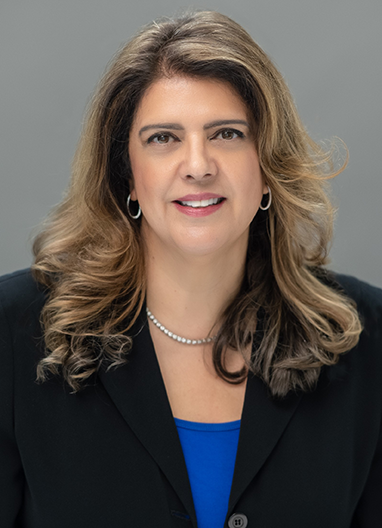Herff College of Engineering
Women's History Month Spolight: Dr. Chrysanthe Preza

Dr. Chrysanthe Preza
Chair and Professor
Electrical and Computer Engineering
“If you want to go fast, go alone; but if you want to go far, go together.”
- Proverb (quoted by Dr. Preza)
Research Expertise: Computational imaging applied to microscopy
In 2006, Dr. Chrysanthe Preza joined the University of Memphis as an assistant professor after working as a Research Associate at Washington University in St. Louis, in the Electronic Signals and Systems Research Laboratory, of the Electrical and System Engineering Department. She is currently the Kanuri Professor and Chair in the Department of Electrical and Computer Engineering, and Professor in the Department of Biomedical Engineering, at the University of Memphis. She received her D.Sc. degree in Electrical Engineering from Washington University in St. Louis in 1998. She leads the research in the Computational Imaging Research Laboratory at the University of Memphis. Her research interests are imaging science, estimation theory, computational imaging enabled by deep learning, and computational optical sensing and imaging applied to multidimensional multimodal light microscopy and hyperspectral imaging.
Math and science sparked her interest from a young age. Her father, an engineer, supported and believed in her, giving her the confidence to pursue her passions. Growing up on the small island of Cyprus, the lack of opportunities brought about by regional turmoil led her to travel abroad to continue her education. She was awarded a Fulbright scholarship and came to the United States to study computer science and electrical engineering at Washington University in St. Louis. There, she was first exposed to computational imaging while working as a graduate research assistant in the Biomedical Computer Laboratory, sparking a lifelong enthusiasm for computational imaging.
Dr. Preza's research is interdisciplinary, involving mathematics, optics, computer science and biology. She said her collaborations help drive the research and ensure that the technology developed in her lab is useful to others. She believes that this diversity is an essential component of a successful project; with various backgrounds, fields and ideas represented, there is an opportunity to find better, more creative solutions.
